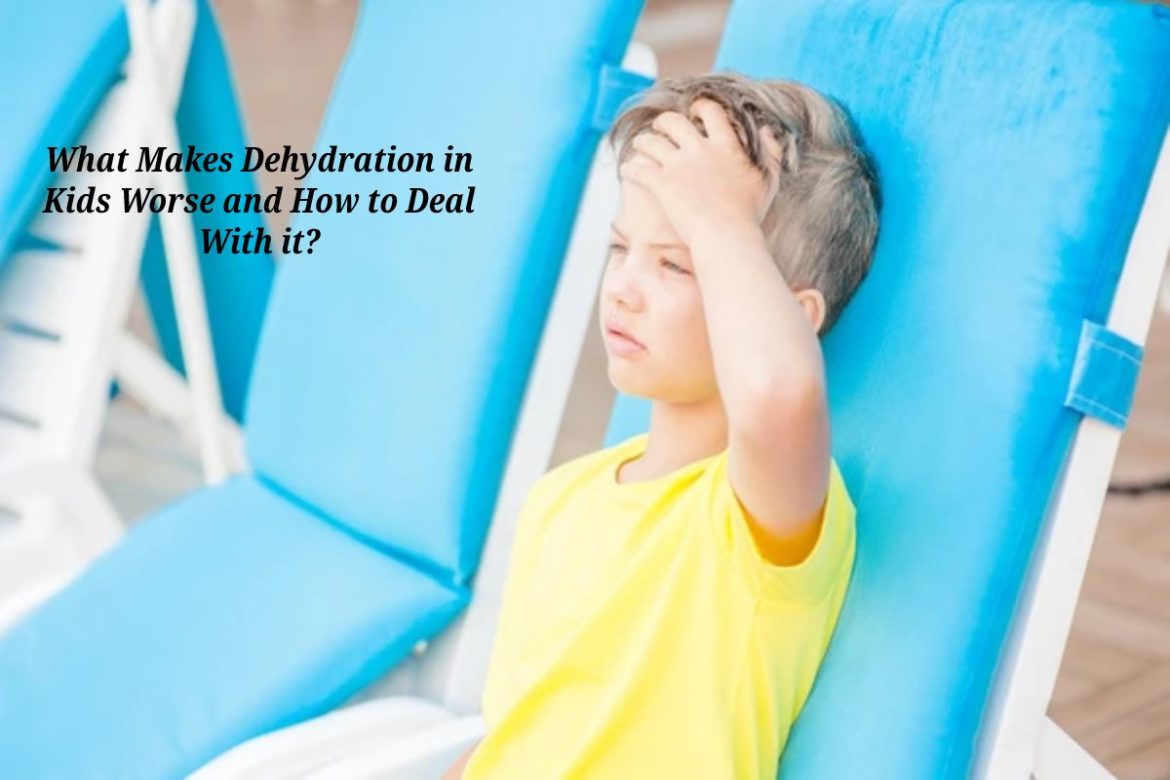What Makes Dehydration in Kids Worse? – Babies and children are more susceptible to the effects of dehydration than adults. You may not realize that your child or baby has become dehydrated because the signs are not always easy to catch.
Hence, it’s crucial to understand the signs, symptoms, and effects of dehydration in kids. Learning what triggers it and worsens it can help you take preventative action.
How to Identify If Your Kid Is Dehydrated?
Dehydration happens when there is a lack of fluids in your body. Kids can get easily dehydrated because they have more water content in their bodies and are generally more active outdoors than most adults.
There are two types of dehydration: mild and severe. Both have common symptoms, but severe cases of dehydration may have more serious symptoms. Watch out for these common signs of dehydration if your child:
- Feels thirsty
- Has dry mouth and no tears
- Feels lethargic and tired
- Sunken eyes or cheeks
- Has not urinated in 12 hours or more (for older children)
- Can’t concentrate and is slow to respond
- Falls unconscious
- Feeling dizzy, disorientated, or weak
- Has dark yellow urine
- Is more irritable than usual
If you notice a drop in energy level in your kids, it’s important to make sure that it isn’t related to dehydration. Thirst isn’t the only sign of dehydration in kids. Be on the lookout, especially if your child has been vomiting or recently had diarrhoea.
What to Do About It
Once you have ascertained that your child has the symptoms of dehydration. It is essential to get iv fluids for dehydration or visit an urgent care center immediately if your child displays several symptoms, like vomiting or not eating and drinking.
Rehydrating your child is crucial when it comes to combating dehydration. Give additional fluids in small quantities to make sure it remain in your child’s system. If your baby is still breastfeeding, nurse them more often during this time.
Give popsicles, ice chips, and other cool fluids to cool down your child and provide rehydration to their body too. For babies can eat solid food, you can try giving them mashed food.
You can also opt to give oral rehydration solutions or mixes to your kids. Consult your paediatrician on which rehydration solution is ideal for your kids and how much you should administer.
Making Sure Children are Hydrated
If your kids are suffering from mild hydration, it’s important to replace fluids as soon as possible, to prevent the situation from getting worse. Make sure your child is resting for at least a day and is in a cool environment.
Keep feeding them fluids in small amounts even if their symptoms improve for a day after they suffer from dehydration. If your child isn’t improving from rehydration solutions, take them to an urgent care unit. In severe cases, they may require IV fluids which can only be administered in a medical centre.
Monitor Dehydration in Kids Constantly
Dehydration is something that can happen to kids often if not monitored properly. You should make sure that your kids are receiving a steady supply of liquids throughout the day to prevent such a situation from happening.
If your kids are outdoors most of the day, provide them with portable water bottles that they can drink from throughout the day.
When they’re sweating or playing during summer, please keep them in cool temperatures when you can and provide cold fluids. It will keep their body temperature low and prevent them from sweating too much.
Keep Your Kids Healthy and Happy
When your kids are dehydrated, it can be stressful and concerning to get them back to their energetic selves again. In dehydration cases that become extremely severe, your child may feel severe abdominal pain, and you might notice blood in their stool.
Your child might fall unconscious as well in extreme situations. Dehydration can be diagnosed by a certified professional by taking a blood test or urine test. If your child is facing the effects of long-term dehydration, the doctor may recommend a special diet to include an increasing number of fluids slowly.
Don’t panic when your child begins to show signs of dehydration and instead analyze their symptoms so you can decide on the best response. Keep your children hydrated constantly to prevent serious health concerns.
When your kids are always hydrated, they will be more energetic throughout the day and can do everything they want to. Feeling dehydrated isn’t proper for anyone, especially for kids who are in their growing phase. Prevent it in time with simple steps taken over time.


